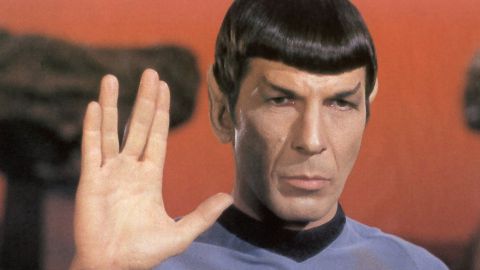Debunking Straw Vulcan Rationality

It’s a common belief about rationality that being rational means being emotionless, being stiff, unable to appreciate beauty in the world, unable to love or even just have fun on a summer day.
In large part I blame Hollywood for this misconception because it is commonly how rationality is portrayed in Hollywood. And in particular I blame Mr. Spock on Star Trek for being the poster child for this caricature of rationality. This caricatured vision of rationality has a name, which I didn’t come up with, although I wish I had. It’s called the Straw Vulcan. This was coined by the website TV Tropes. It’s a play on the expression “a straw man,” which is like a weakened caricature of your opponent’s argument that’s easy to knock down.
So this vision of rationality as being stiff and wooden and emotionless is a caricature because that is not what real rationality looks like. But Hollywood likes narratives where the passion-driven, intuition-driven, spontaneous, flawed, yet endearing hero like Captain Kirk rushes in to save the day when rationality fails.
So the Straw Vulcan is a nice trope for Hollywood to use such that Captain Kirk can save the day, but in reality there is nothing about viewing the world accurately and making effective decisions that naturally implies being emotionless. In fact, if you look at people like Carl Sagan or Neil deGrasse Tyson or Bill Nye, the science guy, all of whom are passionate advocates of a rational worldview, none of them are lacking joy or excitement or passion.
So I blame Hollywood in large part for this, but there are other misconceptions about rationality beyond the idea that you would have to be emotionless if you reason accurately about the world. So for example, Spock tends to assume that other people will make decisions rationally and that’s one of the reasons that he ends up getting into trouble, because of course people don’t behave rationally. T
The human brain is not wired to be rational. We make great decisions in a lot of cases. Our intuition is often very reliable, but as cognitive science has learned there are systematic ways and systematic situations in which human brains make mistakes. And Spock has repeated data about this, which he fails to update his views on, which is actually a case of irrationality, not rationality.
In Their Own Words is recorded by experts in Big Think’s studio.
Image courtesy fo Shutterstock.





